News and Announcements
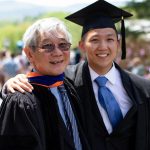
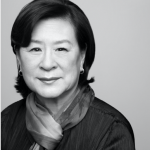
“The Chinese Question: The Gold Rushes and Global Politics,” a book written by Professor Mae Ngai, is on Cundhill’s 2022 shortlist.
The Chinese Question chronicles how a feverish alchemy of race and money brought Chinese to the West and reshaped the nineteenth-century world ― from Europe’s subjugation of China to the rise of the international gold standard and the invention of racist, anti-Chinese stereotypes that linger to this day.
Read more here

Professor Mae Ngai, Lung Family Professor of Asian American Studies, Professor of History, and Co-Director of CSER, was quoted on China Initiative’s new article “After the China Initiative: Seeking Accountability.” She said the China Initiative was a “despicable and blatant case of racial profiling by the Trump DOJ, intended to inflame anti-China sentiment, both protectionist and nativist.”
Read more here
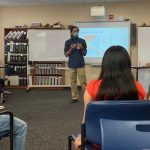
CeMeCA supports a series of applied research projects that tackle some of the region’s most pressing challenges, including state violence within and across borders, corruption, and forced migration, its consequences, and its criminalization.
Read more here
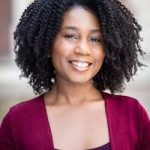
MA student Ashley Wells has been selected for the Campbell Award, given by the alumni association to students who have demonstrated exceptional leadership on campus.

Jennifer Lee elected to the American Academy of Arts and Sciences in the Class III “Social and Behavioral Sciences” Section 6 “Sociology, Demography, and Geography”

CSER’s Professor Frances Negron-Muntaner recently published with Public Books. In this piece, she considers Steven Spielberg’s attempt to infuse “authentic” Puerto Rican culture into his 2021 reboot of West Side Story.

In honor of Asian American Pacific Islander (AAPI) Heritage Month, Columbia News reached out to five faculty members to find out why Columbia needs to center its research and curricula on AAPI issues, why representation in an institution like Columbia matters, and how our whole society benefits from understanding the Asian American Pacific Islander experience.

Marie Myung-Ok Lee wrote an article for Oprah Daily, celebrating Asian American and Pacific Islander Heritage Month with a selection of ten books.

The Mapping Historical NewYork Digital atlas has won two prizes from the annual competition of the the Cartographic and Geographic Information Society of the Smithsonian institution: best in digital/ interactive map and tied for Best in Show. Winners include Project faculty Gergely Baics (Barnard), Rebecca Kobrin and Mae Ngai (History), Laura Kurgan and Leah Meisterlin (GSAPP), project staff Wright Kennedy and Dan Miller, and Stamen Design.
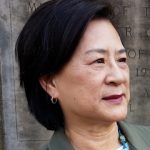
CSER’s Co-Director Mae Ngai’s Wins Bancroft Prize – considered one of the most prestigious in the field of American history. Her book “The Chinese Question: The Gold Rushes and Global Politics,” published by W.W. Norton, was praised by the jury as “an extraordinary book” that “brilliantly shows us how much of the white Anglo-American world came to view the Chinese as a racially unassimilable and threatening people.
The Bancroft, which includes an award of $10,000, was established in 1948 by the trustees of Columbia University, with a bequest from the historian Frederic Bancroft. Books are evaluated for “the scope, significance, depth of research, and richness of interpretation.”

Mae Ngai’s The Chinese Question is a finalist for the LA Times book award in History. Ngai also gave virtual book talks at the Chinese American Museum on Feb. 17 and at Stanford University on Feb. 23, and the annual Neil Gotanda Lecture at Berkeley Law on Feb. 24.

Deborah Paredez’s book “Year of the Dog” was featured in Columbia Recommended Reading in “9 Books by Columbia, Barnard Faculty That Are Perfect for Women’s History Month”

Among the handful of young Asian American authors that Gish Jen is reading, this is who she recommends. Her current recommendation includes “The Evening Hero” by Marie Myung-Ok Lee—a page-turning novel following a Korean immigrant pursuing the American dream.
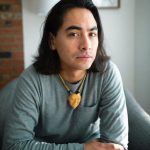
Julian Brave NoiseCat has been awarded the 2022 American Mosaic Journalism Prize for his work reporting on underrepresented or misrepresented groups in the United States.

“If the Supreme Court decides to end affirmative action … [t]he result will be institutions that are less representative, less intellectually stimulating, and less equipped to serve an increasingly diverse America.”
A new Editor’s Blog post on Science by Jennifer Lee.

CSER Professor Marie Myung-Ok Lee had an appearance on CNN’s podcast. Listen at the attached link.

